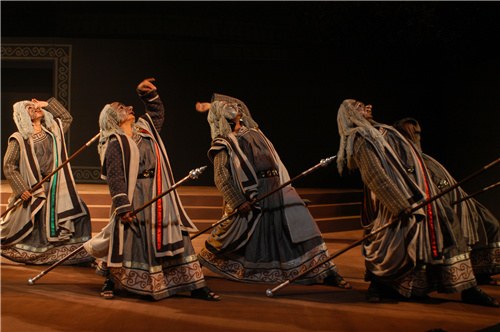
Director: Abhilash Pillai, Mohan Maharishi, John Clark, Ovlyakuli Khodjakuli, Santanu Bose
Playwright: Aeschylus, Sophocles, John Barton, Kenneth Cavender
Institution: National School of Drama, India
Venue: ATEC Website
Time: 09:30, May 18, 2019
Event: The 4th World Theatre Education Conference with 6th Asian Theatre Schools Festival
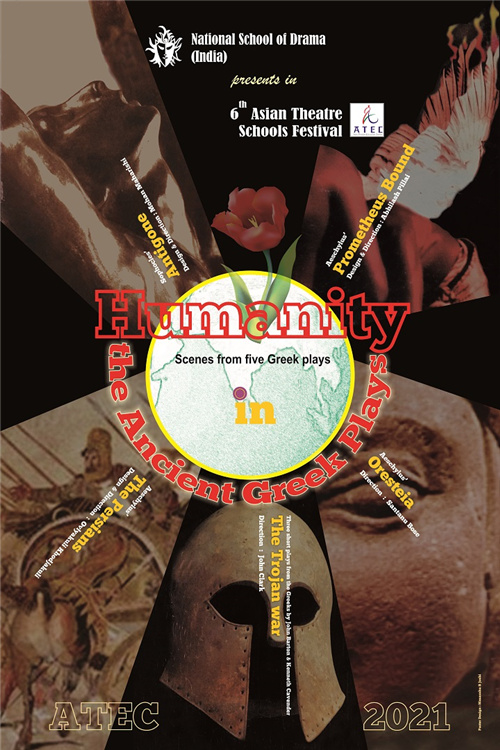
Director’s Notes
PROMETHEUS BOUND: Abhilash Pillai
The dominating element in this play, which gave enough energy for us all its subjectivity and the extraordinary 'modernism' even though it has a mythical structure. Today's audience as also the performers and directors do not know the intricacies of mythical plots of Greek plays. Considering these, we thought Greek tragedy needs a fresh look. Why can't we break some of the performing traditions of these plays?
ANTIGONE: Mohan Maharishi
I have seen a Greek comedy in Greece by one of the greatest exponents in field, Karlos Kuhn, where I witnessed a great level of bawdy humour and exaggerated physicality taken to its extreme, ironically this was what brought immense joy to the audiences there. I feel that the cultural circumstances in India today do not permit us those liberties. However, one of the common features of all classical theatre, be it from west or from Asia, is frank theatricality.
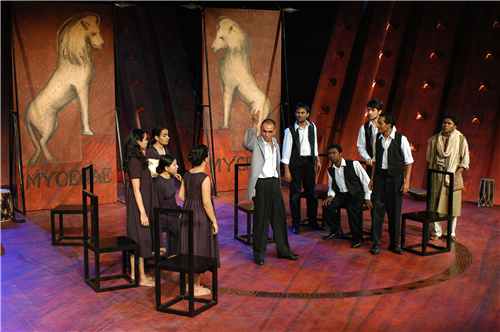
THE TROJAN WAR: John Clark
The Trojan War consists of three plays from The Greeks by John Barton and Kenneth Cavender, a trilogy of plays performed by Royal Shakespeare Company in 1979. John Barton believed Greek tragedy needed a fresh look. Traditional performances were heavy, boring and inhuman.
With Kenneth Cavender they made short versions of ten plays by Aeschylus, Sophocles and Euripides that concentrated on the characters and told their stories as clearly and simply as possible.
‘Iphigenia in Aulis’, ‘The Trojan Women’ and ‘Agamemnon’ tell the story of a war which happened 4000 years ago.
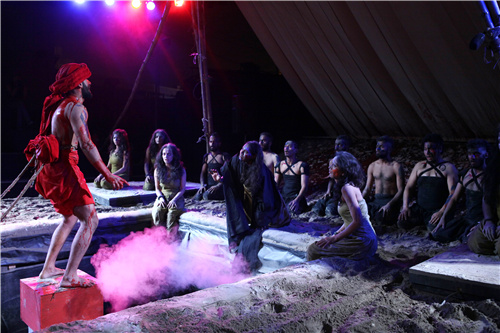
THE PERSIANS: Ovlyakuli Khodjakuli
The Persians can be seen as a considerate commemoration of Persia’s fate and a celebration of the Greek spirit that triumphed. Because it entertains both interpretations, it is somewhat distinct from other Ancient Greek tragedies. That’s why high octane tragedy seen as a celebration in our play.
ORESTEIA: Santanu Bose
The main idea of Oresteia is that injustice and such primitive instruments of morality as the blood-feud must be eliminated if the human society is ever to attain to a high level of social organization, which can be done only by the introduction of public morality and civic legal processes. In today's world we witness the degradation of morality and the legal structures deliberately been erased from the social construct.

Synopsis
PROMETHEUS BOUND
Prometheus Bound is a Greek tragedy by Aeschylus of which period is not known. The play concerns the god Prometheus, who in defiance of Zeus (Jupiter) has saved humanity by giving them a gift of fire. For this act Zeus has ordered to bound him with chains and take him to a remote cliff.
ANTIGONE
In Sophocles' classic Antigone, the action starts after brothers Polynices and Eteocles have battled to the death for the crown of Thebes. Their uncle, the newly crowned King Creon, proclaims that Eteocles is to be buried with full honours, while the corpse of Polynices is to be left on the battlefield to rot. Outraged, Polynices' sister Antigone defies Creon's mandate, and risks her life to properly honour her brother's corpse. Antigone soon confesses to the deed and is sentenced to death by slow suffocation, despite the protests of Creon's own son Haemon, who is deeply in love with her. Ultimately, tragic fate brings fit punishment on Creon's insolence and outrage.
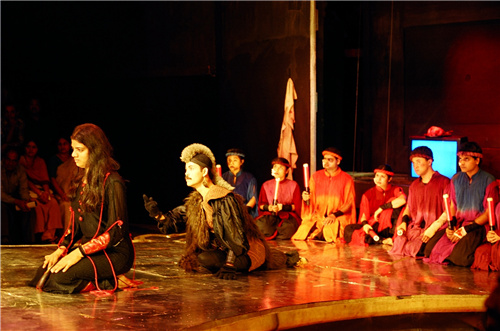
THE TROJAN WAR
In Greek mythology, it is said that the Trojan War was between the Greeks and the people of Troy. The strife began after the Trojan prince Paris abducted Helen, wife of Menelaus of Sparta. At night the Greeks returned; their companions crept out of the horse and opened the city gates, and thus, Troy was destroyed.
THE PERSIANS
The Persians takes place in Susa, which at the time was one of the capitals of the Persian Empire, and opens with a chorus of old men of Susa, who are soon joined by the Queen Mother, Atossa, as they await news of her son King Xerxes' expedition against the Greeks.
ORESTEIA
Oresteia is the only surviving example of a Greek tragic trilogy and thus has a great significance in the history of Drama. The principal themes of the play include the contrast between revenge and justice, as well as the transition from personal vendetta to organized litigation. A waiting, faith, hope, victory and a ray of far-fetched hope, the burden of a son avenging his father's murder from his own mother, but at the end his soul that shocks him. The argument given for justice, luck is not everything, but the path we choose to make it takes our decision to the end.

